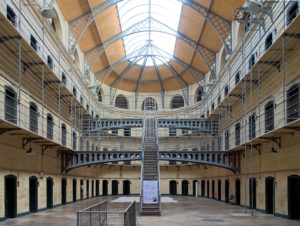
The concept of statehood implies a classification of persons as citizens on the one hand and “foreigners” on the other hand. In the context of law in Germany, for example, “foreigners” are further sub-classified into persons that do not need a residence permit (like citizens of EU member states), persons with a residence permit, asylum seekers, and those without a residence permit. Within the residence law, norms are explicitly formulated for anyone who is part of the last two groups. Violations of aforesaid norms, like the violation of mandatory residence or simply staying in Germany without a residence permit, can result in a prison sentence of up to one year. “Foreigners” that the German state plans to deport also face incarceration.



